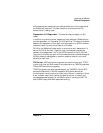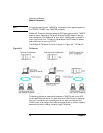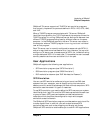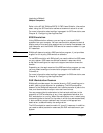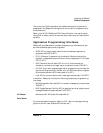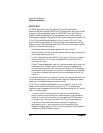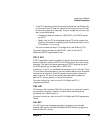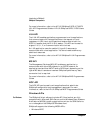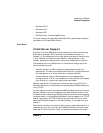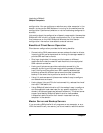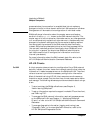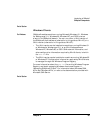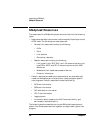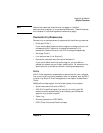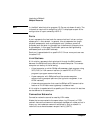
Chapter 2 85
Introduction to SNAplus2
SNAplus2 Components
• Windows CPI-C
• Windows LUA
• Windows CSV
• 3270 Emulator Interface Specification
For more information about Windows SNA APIs, see the documentation
provided with Microsoft SNA Server.
End of Section
Client/Server Support
Computers running SNAplus2 can be configured to communicate using
client/server protocols. When client/server protocols are used in a
network, all the computers using client/server protocols to communicate
in that network are referred to as a domain. Each computer in the
network specifies the same domain name when SNAplus2 is installed.
The computers running SNAplus2 in a client/server configuration can
take the following roles:
• A server contains an SNA node and its associated connectivity
components. The server provides SNA connectivity to applications on
the local system or on other machines in the same domain.
• A client does not contain SNA components, but accesses them
through a server. A client can access one or more servers at the same
time, and can run concurrent applications as needed.
Servers must be HP-UX computers; clients can be running HP-UX or
Windows. Servers and clients communicate across the SNAplus2 domain
using TCP/IP.
You can configure one or more separate SNAplus2 domains on the same
physical network, using a unique name for each different domain. Use
the same domain name for all SNAplus2 servers and clients that belong
the same domain. A single SNAplus2 domain can correspond to a TCP/IP
subnet, can be part of a TCP/IP subnet (so that there are two or more
separate SNAplus2 domains in the same subnet), or can span multiple
subnets.
Each server maintains information about its own node configuration in a
node configuration file. You can use the SNAplus2 administration tools,
described in “Administration Tools”, to examine and modify the node's



